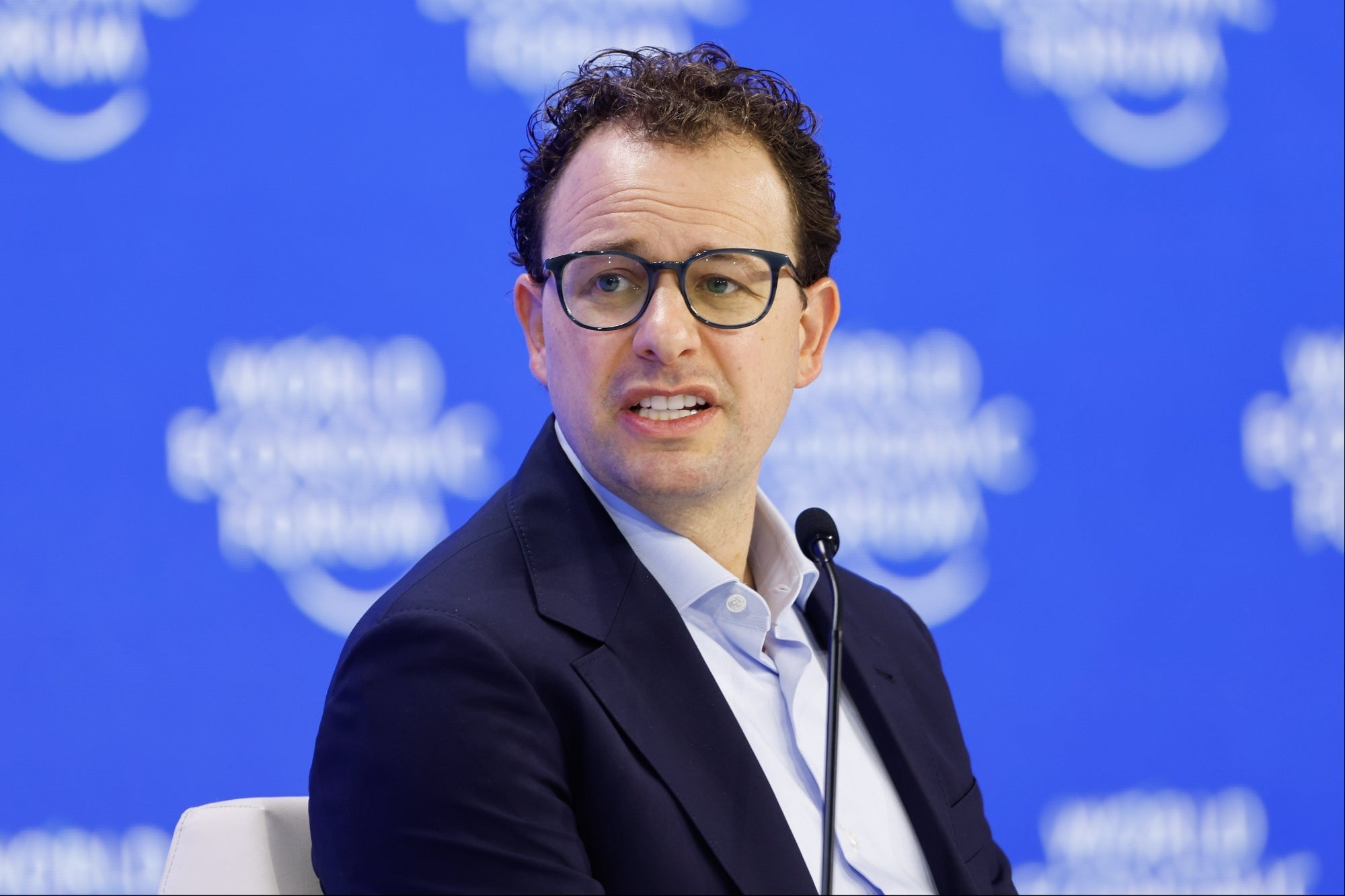Opinions expressed by Entrepreneur contributors are their own.
For decades, college had no real competition. It wasn’t just an educational path; it was the most powerful brand in American life. Parents, schools and employers marketed it as the only safe route to the American Dream. Glossy brochures, billion-dollar ad campaigns, alumni prestige and rankings in U.S. News & World Report kept reinforcing the message: College equals success.
But today, that monopoly is cracking. Aviation schools, trade programs and trucking startups are mounting their own branding campaigns — promising high pay, entrepreneurial freedom and faster, cheaper paths to prosperity. The reality is already here: Pilots, aircraft mechanics, electricians, independent truckers and others can earn as much or more than many college graduates. What lags is perception. And that’s why the branding war between college and the trades is just beginning.
Related: Do You Really Need a College Degree These Days?
The college brand: Once untouchable
Universities built their dominance the same way top consumer brands do: with relentless marketing. From campus tours that feel like product demos to billboards touting alumni salaries, college was positioned as both a rite of passage and a must-have credential.
For years, the competition barely showed up. Skilled trades and technical careers weren’t marketed at all — they were stigmatized. A student who skipped college was seen as someone who had “settled.” Even as tuition soared and student debt ballooned, the idea that “college equals success” remained sticky because it was backed by decades of consistent PR.
But perception is shifting. A recent Workforce Monitor poll found that 33% of U.S. adults recommend trade school for high school grads, compared to just 28% who recommend a four-year degree. Parents and Gen Z may still default to college, but more are starting to see skilled paths as respectable, even aspirational.
This shift isn’t just economic. It’s the result of smart PR and branding by industries that know they need to win the perception battle if they want to fill critical jobs.
Aviation: Pilots and mechanics in the spotlight
Nowhere is the branding battle more visible than in aviation. Airlines face a pilot shortage so severe that Boeing projects the need for 804,000 new pilots by 2037. To meet that demand, they’ve leaned heavily into PR and marketing.
Take Thrust Flight’s “Zero Time to Airline” program. The name itself is a masterstroke of branding. It tells a clear story: You can go from zero flight hours to the cockpit of a regional airline in just two years. It’s essentially packaged like a startup accelerator for aviation careers — fast, focused and aspirational.
Airlines themselves are part of the rebrand. In 2022, Delta made national headlines by dropping its four-year degree requirement for new pilots. That move wasn’t simply a policy change — it was a deliberate PR campaign designed to tear down the perception barrier that only college grads could fly for major carriers.
The economics reinforce the messaging. The average U.S. airline pilot earns around $220,000 a year, and with recent wage hikes, new pilots can now recoup training costs in four years or less. For a teenager weighing options, the soundbite is irresistible: “$200,000 without college.”
But it’s not just pilots. The aviation industry is also reframing careers for aircraft mechanics and technicians. With a median salary of around $75,000 and specialized certifications available in two years or less, mechanics are now marketed as tech professionals critical to safety and commerce. Rather than “wrench turners,” they’re positioned as guardians of billion-dollar fleets, a message designed to elevate status and respect.
The combined narrative is powerful: Whether you’re flying planes or maintaining them, aviation offers high salaries, critical skills and prestige — without requiring a bachelor’s degree.
Related: Trade School vs. College: Which Is Right for You? (Infographic)
Trucking: From job to business ownership
Trucking has undergone an equally dramatic makeover. For years, it was branded as hard work with modest pay and little respect. But startups like Billor and CloudTrucks are reframing it as entrepreneurship on wheels.
Billor’s pitch is simple: lease-to-own programs that put drivers in trucks with no credit check, giving them full ownership in four years. That changes the narrative from “job” to “asset ownership” — a driver isn’t just hauling freight, they’re building wealth.
CloudTrucks takes a tech-first approach. Branding itself as a “virtual carrier,” it equips independent drivers with the same back-office tools, compliance systems and load-booking capabilities that large fleets use. The economics are compelling: Independent drivers keep 82% of revenue, often out-earning company drivers while enjoying the freedom to choose their own routes and schedules.
The contrast in branding is stark: A company driver is positioned as a steady employee, while an independent operator is sold the dream of being a small business owner. That story is working. The U.S. now has more than 900,000 owner-operators, more than double just a few years ago.
The trades: From backup plan to entrepreneurial path
Construction trades are in the midst of their own rebrand. Once considered fallback careers, they’re now marketed as modern, entrepreneurial and future-proof.
Electricians illustrate the shift. The median wage is $62,000, with six-figure potential for those who advance. The field is expected to grow 11% over the next decade, creating about 80,000 openings each year. Unlike college, apprenticeships let people earn while they learn, avoiding student debt.
Companies like Mobilization Funding add fuel to the story by helping subcontractors secure financing upfront, allowing them to scale and compete on larger projects. The implicit message: You’re not just a worker; you’re a business owner capable of growth.
Meanwhile, social media influencers in the trades are helping to reframe these careers as skilled, respected and even aspirational. The stigma is fading — and branding has everything to do with it.
Data as PR’s secret weapon
Behind every one of these rebranding efforts lies data packaged as stories.
-
“Pilots make $220,000 without college.”
-
“Aircraft mechanics earn $75,000 with two-year certifications.”
-
“Independent truckers can own rigs in four years and out-earn company drivers.”
-
“Electricians are adding 80,000 jobs annually.”
These aren’t just statistics; they’re headlines, crafted to challenge assumptions and shift public perception. For decades, universities mastered this playbook by touting alumni earnings. Now, trades and technical careers are using the same strategy — and it’s working.
The perception gap
Despite the progress, perception still lags reality. Gen Z students remain more likely to pursue college, and parents still see degrees as symbols of status. The economics of alternatives are clear, but the branding battle is far from over.
Colleges had a century-long head start in marketing themselves as the default choice. Aviation, trucking and the trades are only now mounting a counteroffensive. But thanks to startups, social media and data-driven PR campaigns, they’re closing the gap faster than ever.
Related: These Are the 10 Best-Paying ‘New Collar’ Jobs, Prioritizing Skills Over Degrees
Why the branding war matters
The American Dream has always been about opportunity. But opportunity doesn’t sell itself — it has to be framed, packaged and communicated. That’s what’s happening now in fields like aviation, trucking and the skilled trades.
The branding war between college and alternative paths is still in its early rounds. Universities will keep promoting degrees as the safest option. But industries hungry for talent are telling a new story: one of accessibility, ownership and financial freedom without the burden of student debt.
For entrepreneurs and marketers, the lesson is clear: Economics may create the opportunity, but branding determines how it’s perceived. If piloting can be positioned as a direct, high-ROI career path, if truckers can be reframed as business owners, and if tradespeople can be reframed as entrepreneurs, then any industry can reshape its image. The future of work will be defined not just by what jobs pay, but by which stories win.








